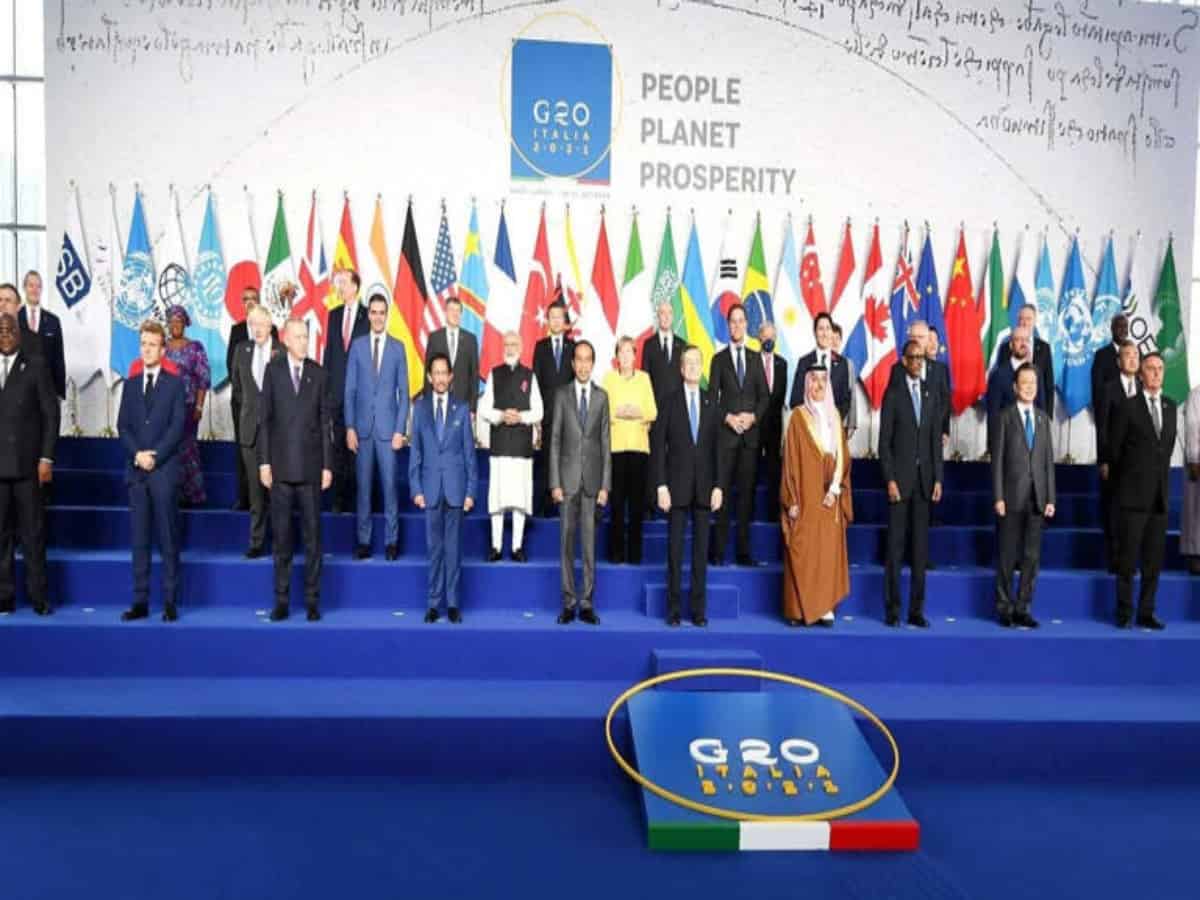
New Delhi: India has listed its priorities ahead of assuming the G20 Presidency for a year from December 1, 2022 to November 30, 2023.
In a statement on Tuesday, the Ministry of External Affairs said: “Our G20 priorities are in the process of being firmed up, ongoing conversations inter alia revolve around inclusive, equitable and sustainable growth; LiFE (Lifestyle For Environment); women’s empowerment; digital public infrastructure and tech-enabled development in areas ranging from health, agriculture and education to commerce, skill-mapping, culture and tourism; climate financing; circular economy; global food security; energy security; green hydrogen; disaster risk reduction and resilience; developmental cooperation; fight against economic crime; and multilateral reforms”.
Under the role, India is expected to host over 200 G20 meetings across the country, beginning from this December.
The G20 Leaders’ Summit at the level of Heads of State Government is scheduled to be held on September 9-10, 2023 in New Delhi, said the Ministry statement.
The G20 is an inter-governmental forum of the world’s major developed and developing economies.
It comprises 19 countries — Argentina, Australia, Brazil, Canada, China, France, Germany, India, Indonesia, Italy, Japan, South Korea, Mexico, Russia, Saudi Arabia, South Africa, Turkey, the UK, the US — and the European Union (EU).
Collectively, the G20 accounts for 85 per cent of the global GDP, 75 per cent of international trade and two-thirds of the world population, making it the premier forum for international economic cooperation.
India is part of the G20 Troika (current, previous and incoming G20 Presidencies), which includes Indonesia and Italy.
“During our Presidency, India, Indonesia and Brazil would form the Troika. This would be the first time when the Troika would consist of three developing countries and emerging economies, providing them a greater voice,” the statement said.
The G20 currently comprises Finance Track, with eight workstreams (Global Macroeconomic Policies, Infrastructure Financing, International Financial Architecture, Sustainable Finance, Financial Inclusion, Health Finance, International Taxation, Financial Sector Reforms)
Sherpa Track, with 12 workstreams — Anti-corruption, Agriculture, Culture, Development, Digital Economy, Employment, Environment and Climate, Education, Energy Transition, Health, Trade and Investment, Tourism.
Ten Engagement Groups of private sector/civil society/independent bodies (Business 20, Civil 20, Labour 20, Parliament 20, Science 20, Supreme Audit Institutions 20, Think 20, Urban 20, Women 20 and Youth 20).
In addition to G20 members, there has been a tradition of the G20 Presidency inviting some guest countries and international organizations to its meetings and summit.
Accordingly, in addition to regular international organizations (UN, IMF, World Bank, WHO, WTO, ILO, FSB and OECD) and Chairs of Regional Organizations (AU, AUDA-NEPAD and ASEAN).
India, as G20 Presidency, will be inviting Bangladesh, Egypt, Mauritius, the Netherlands, Nigeria, Oman, Singapore, Spain and UAE as guest countries, as well as the International Solar Alliance, Coalition for Disaster Resilient Infrastructure and the Asian Development Bank as guest international organizations.
